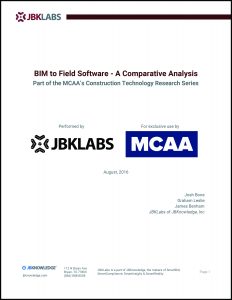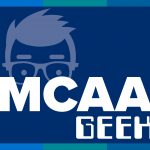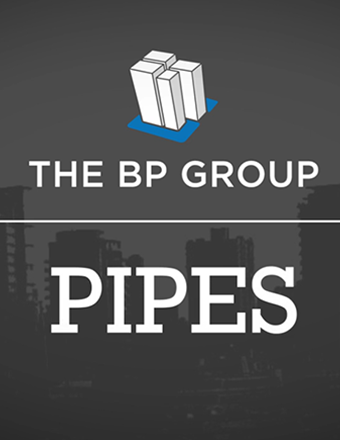Congratulations PIPM Summer Graduates
Congratulations are in order for the newest batch of Pre-IPM graduates! Classes 11-14 of MCAA’s newest national education program have just completed their 12 weeks of introductory project management training. How did it go? Well, here’s what our recent grads had to say about it:
Practical Application
- “At the end of each class, I was excited to apply the material to my daily work. It also motivated me to learn more about project management and to become a great PM.”
- “The course was so engaging and each class was perfectly different. I loved hearing different perspectives across different topics. The content was interesting and valuable. As someone who is brand new to this industry, I couldn’t feel more confident […] for a difficult and rewarding career.”
Our Instructors
- “Great instructors with great advice and knowledge! I learned a lot through this class that will help me start my career on the right path.”
- “I liked that each instructor was genuinely excited about the topic they were teaching.”
- “The instructors were very engaged and they appeared to care a great deal about teaching the next generation of project managers.”
- “Instructors were super engaging and helpful. I could tell they liked sharing/teaching people things they’ve learned along the way. Nice to have the opportunity to learn from different leaders of the business.”
- “I really liked the ability to basically be taught by some of the best in the business. Having the opportunity to ask questions if necessary who have really had the hands on and years of experience. It wasn’t just read this book and learn it was real life experiences being shared and it’s helpful to learn that way. Also appreciated how it started with real basic material that you can apply in daily life.”
Course Content
- “This was a great class. It covered so many topics that were all very practical and helpful. Thanks!”
- “I think the course did a phenomenal job at showing me aspects to project management I hadn’t thought about before. Even areas I had some experience in, I learned views that I hadn’t considered… I think this course did a great job at exposing me to the basics of everything.”
- “I really enjoyed how each class has its own specific topic that we learned about but regardless each class tied in together well. The course topics flowed in a logical manner that was easy to understand.”
- “Even though it was a lot of information the time went by quickly all the instructors where able to keep us engaged in the course.”
- “I liked how the course focused on self improvement and really paved a path to becoming a great project manager.”
Course Structure
- “I love that it was online. I understand some classes have to be in person, but I am not always available to take a week off and go to a different state for a class. It really allowed me an opportunity to learn a subject I had been wanting to, which will help me in my career.”
- “The quizzes and homework were helpful to allow us to review.”
- “I think the homework and the engagement with someone in the office was very beneficial in learning certain concepts of project management.”
- “I learned the most in the Q&A section since those were focused on scenarios that occur on our projects.”
- “The best part about the program, in general, was how [instructors] would interact with the students. I enjoyed hearing what others answered in their homework assignments and reflecting on their answers versus mine.”
Who Should Attend
- “I wish I had taken this course when I first started as a PE.”
- “Great for someone who has little experience to understand what a PM does and why.”
- “[Pre-IPM focused on] taking the time to really hammer out the basics. Crucial for people with 1-3 years of experience, which has a lot of training on the fly.”
- “For a beginner class, it was very detailed! It allows anyone that might be interested in project management, to find out if it is a career they might want to pursue!”
- “You guys rocked… Being in the field for 30 + years I know what it takes to build, sitting on the other side of the desk is a little intimidating, so thank you for the experience that you are teaching.”
- “Overall, I felt like this was the perfect program for someone like me – fresh out of college with little experience in the mechanical contracting industry. Each of the speakers did a great job presenting a high level overview of the topics.”
Interested in sending someone to Pre-IPM?
- The next Pre-IPM courses will begin in May of 2022.
- Registration will open in early spring of 2022, and the registration window will be announced in advance via the MCAA National Bulletin.
- Registration is done online, and is first-come, first-served.
- For more information about the program, click the link below.
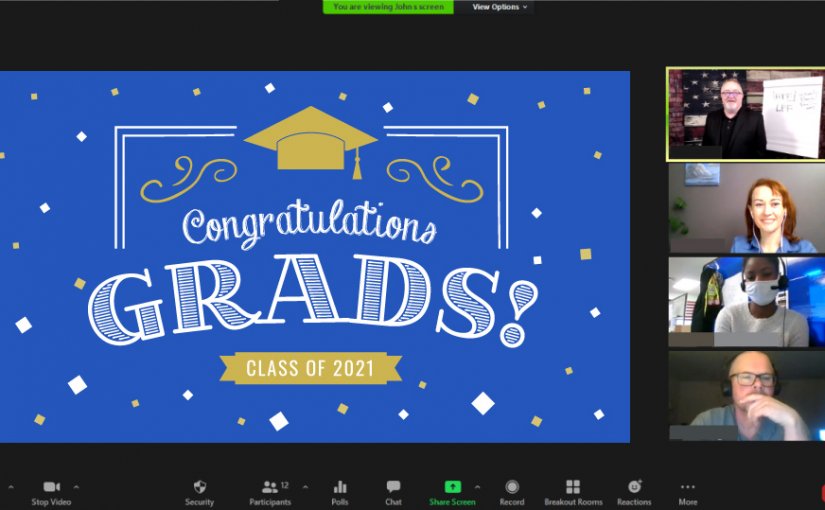

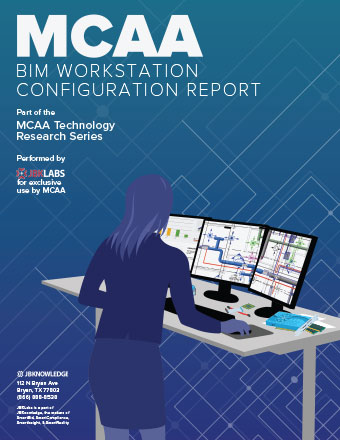
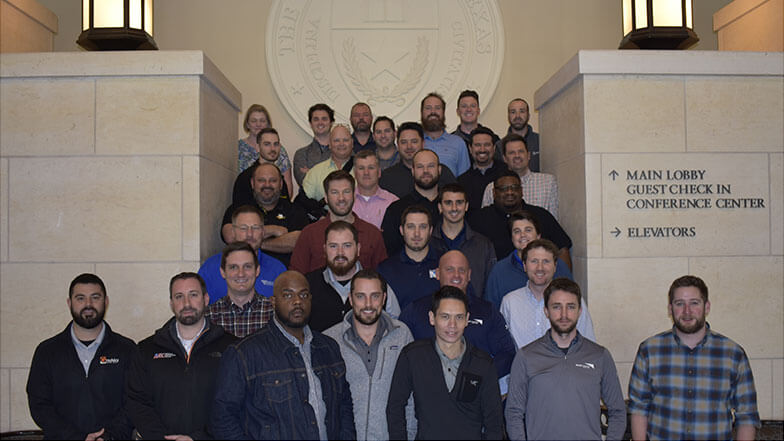

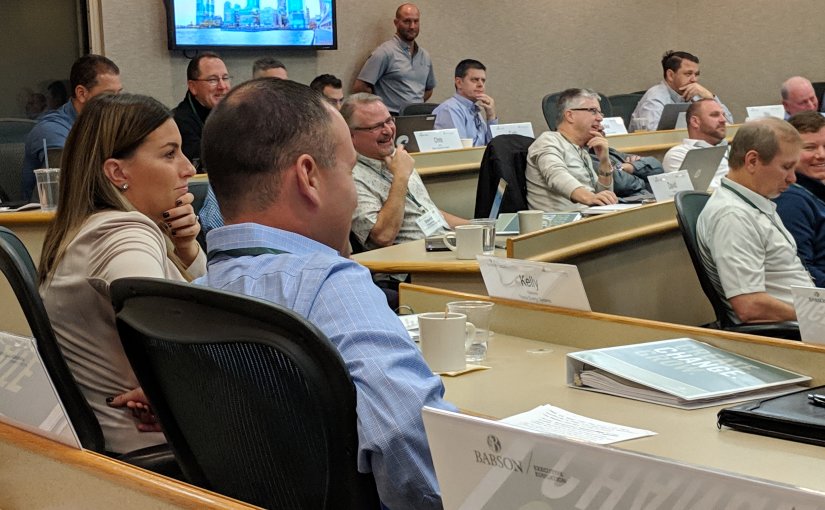
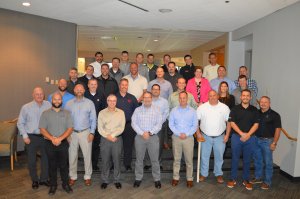 conducted annually at
conducted annually at 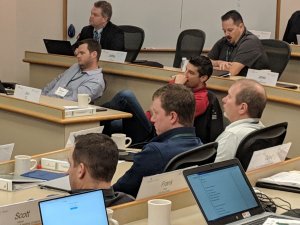 but would do so by sourcing and developing content that could be incorporated by professional writers into the new Management Methods Manual in the form of online WebBooks.
but would do so by sourcing and developing content that could be incorporated by professional writers into the new Management Methods Manual in the form of online WebBooks.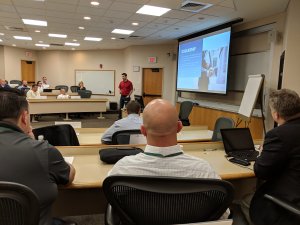 content was now ideal for inclusion, including new or existing videos, animation, and even the development and inclusion of a software solution for comparing the costs of college vs trades education and their relative payback periods.
content was now ideal for inclusion, including new or existing videos, animation, and even the development and inclusion of a software solution for comparing the costs of college vs trades education and their relative payback periods.
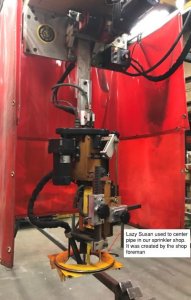 These missing tools and artful uses are often easy to see on a job site or in the Fab shop. That’s why I think Con Techs should spend a considerable amount of time observing or possibly working with the craftsmen in the field looking for missing tools, materials, methods and potential artful use. Every time I step on a job site I look at what craftsmen do with their tools with an eye to unconventional uses. Some of the best ideas have grown out of watching people use their tools in some absurd way. That can communicate louder than words what is really needed.
These missing tools and artful uses are often easy to see on a job site or in the Fab shop. That’s why I think Con Techs should spend a considerable amount of time observing or possibly working with the craftsmen in the field looking for missing tools, materials, methods and potential artful use. Every time I step on a job site I look at what craftsmen do with their tools with an eye to unconventional uses. Some of the best ideas have grown out of watching people use their tools in some absurd way. That can communicate louder than words what is really needed.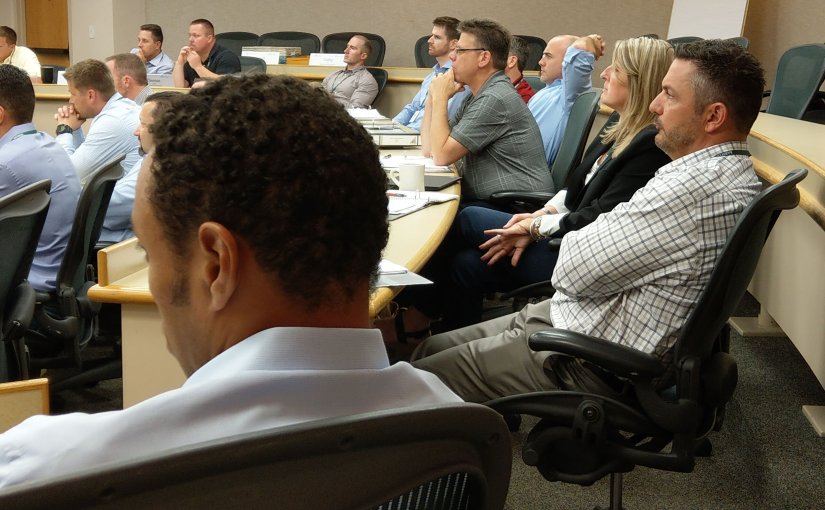
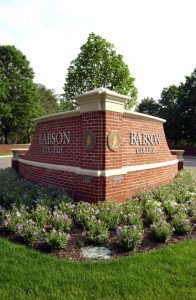
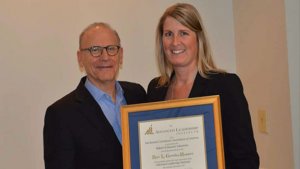 “Going through ALI was an amazing and rewarding experience! It has opened doors for me and given me the confidence I needed to take on the role as president. I’m excited about my future and the future of our company as we celebrate 110 years in 2018!”
“Going through ALI was an amazing and rewarding experience! It has opened doors for me and given me the confidence I needed to take on the role as president. I’m excited about my future and the future of our company as we celebrate 110 years in 2018!” 
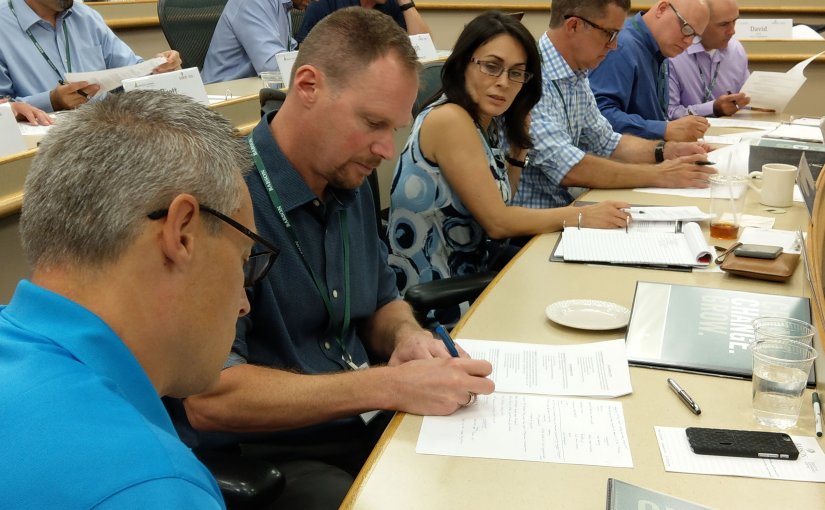
 culmination of 16 years of intense ALI program design, attendee evaluation/selection, and precise execution by MCAA’s partner, Babson Executive Education. It was,
culmination of 16 years of intense ALI program design, attendee evaluation/selection, and precise execution by MCAA’s partner, Babson Executive Education. It was, 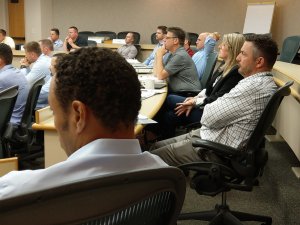 according to Keith Rollag, Babson’s ALI Faculty Director, “…a program where the faculty, the curriculum, and most of all, the goals and chemistries of the attendees, just all seemed in sync. It was remarkable!”
according to Keith Rollag, Babson’s ALI Faculty Director, “…a program where the faculty, the curriculum, and most of all, the goals and chemistries of the attendees, just all seemed in sync. It was remarkable!”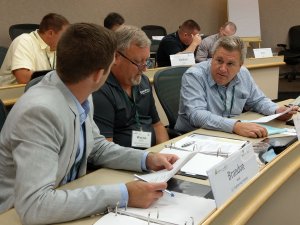 This incredibly cohesive group also attacked their final team projects, developing new or updating existing
This incredibly cohesive group also attacked their final team projects, developing new or updating existing 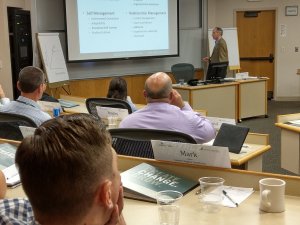 decided to challenge this once-a-year assembly of some of the sharpest minds in our industry to use their final class projects to bolster and improve our industry’s preeminent body of knowledge, MCAA’s Management Methods Manual. The results continue to get better as MCAA better defines the project goals and as attendees learn more by standing on the shoulders who have graduated before them.
decided to challenge this once-a-year assembly of some of the sharpest minds in our industry to use their final class projects to bolster and improve our industry’s preeminent body of knowledge, MCAA’s Management Methods Manual. The results continue to get better as MCAA better defines the project goals and as attendees learn more by standing on the shoulders who have graduated before them.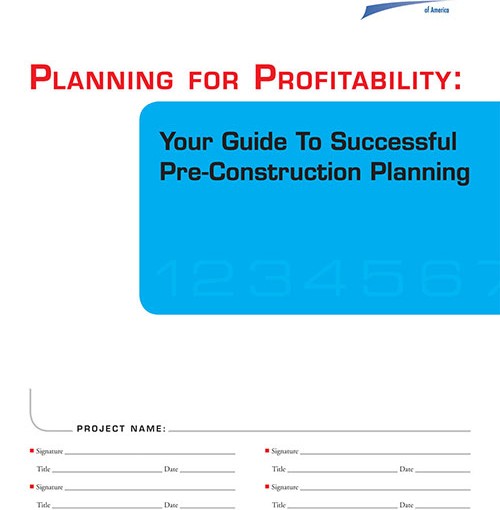
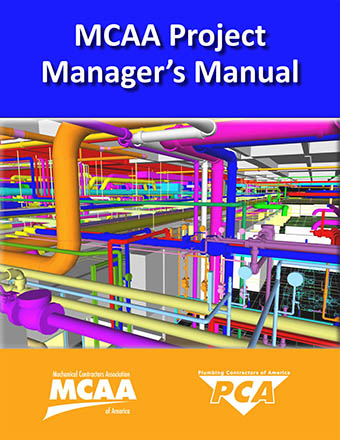
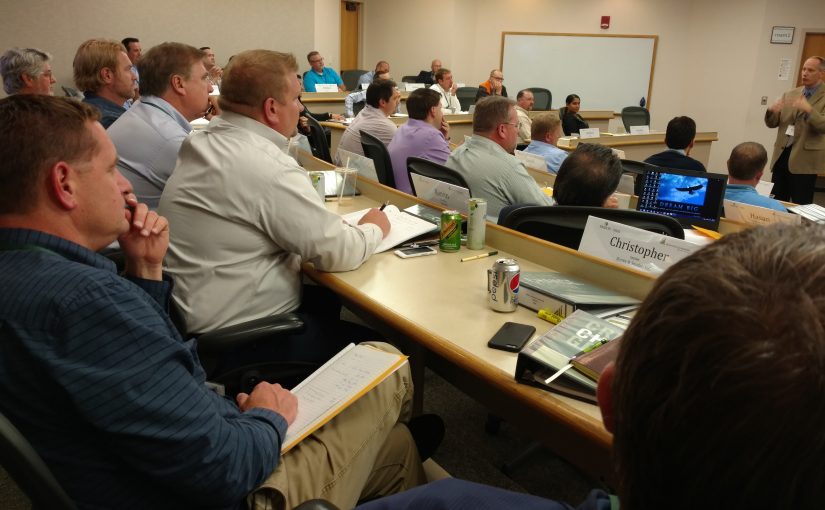
 will have their projects memorialized as MCAA Management Methods Bulletins. All of the 2016 topics are technology-oriented to act in concert with MCAA’s Construction Technology Initiative. The top four for 2016 are:
will have their projects memorialized as MCAA Management Methods Bulletins. All of the 2016 topics are technology-oriented to act in concert with MCAA’s Construction Technology Initiative. The top four for 2016 are: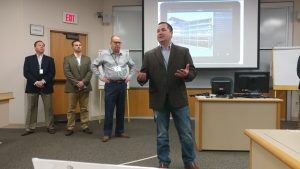
 are more immediately ready for publication than others, every effort from every team advances the state of the industry’s best practices. No losers, only winners…us!
are more immediately ready for publication than others, every effort from every team advances the state of the industry’s best practices. No losers, only winners…us!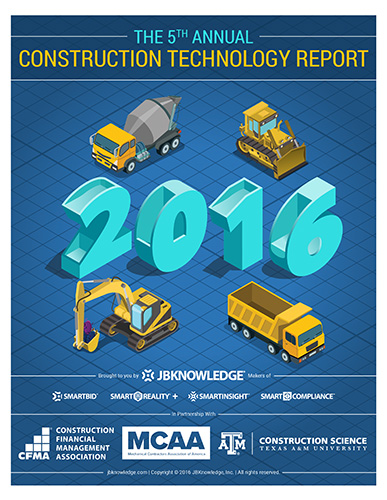
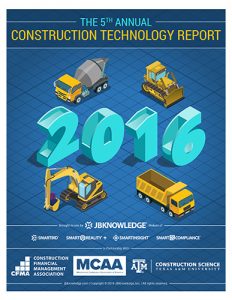 The report includes surveys on BIM strategies, mobile integration, cloud security and ways that contractors are implementing technology practices within their company. In each section, the popularity of different software types are reported and insight into spending and management of technology initiatives are provided. As the report’s sponsor, MCAA has an added benefit of segmenting out responses from mechanical, plumbing and service contractors to add further definition on later research studies.
The report includes surveys on BIM strategies, mobile integration, cloud security and ways that contractors are implementing technology practices within their company. In each section, the popularity of different software types are reported and insight into spending and management of technology initiatives are provided. As the report’s sponsor, MCAA has an added benefit of segmenting out responses from mechanical, plumbing and service contractors to add further definition on later research studies.
 When he handed it to me to just try out, my skepticism vanished immediately. Unlike the touchscreen on my “smart phone”, it was responsive. I could touch and zoom and interact with a computer in ways that I could never do before. I could see the immediate potential. After getting my first iPad, I realized it could do about 85% of what my computer did in something that was drastically lighter and more portable. It changed the way I worked. I ditched the laptop when I traveled and always spent some time on the couch at night checking on work.
When he handed it to me to just try out, my skepticism vanished immediately. Unlike the touchscreen on my “smart phone”, it was responsive. I could touch and zoom and interact with a computer in ways that I could never do before. I could see the immediate potential. After getting my first iPad, I realized it could do about 85% of what my computer did in something that was drastically lighter and more portable. It changed the way I worked. I ditched the laptop when I traveled and always spent some time on the couch at night checking on work.